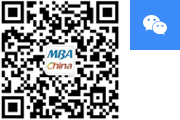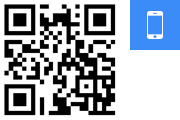上海外国语大学“人工智能技术发展趋势及应用”专题报告会顺利召开

【MBAChina网讯】11月9日,由上海外国语大学主办的“人工智能技术发展趋势及应用”专题报告会在上海外国语大学召开。
On November 9th 2018, Shanghai International Studies University(SISU) held a dialogue themed “Future Development and Application of Artificial Intelligence”.
人机耦合是将人工智能推向应用落地的关键且正在成为全球共识。科大讯飞董事长刘庆峰认为,人机耦合的含义分为两个方面,一方面是机器辅助人工,另一方面是人工帮助机器。在翻译行业,如何运用人机耦合让机器更好地帮助口译,还值得我们去进一步探究。
Human-machine coupling is the key to the application of artificial intelligence. The idea is becoming increasingly accepted across the globe. Liu Qingfeng, chairman of iFLYTEK CO.,LTD. (iFLYTEK), discussed the meanings of human-machine coupling from two angles: machine-assisting-human and human-supporting-machine, and highlighted that more is yet to be done to realize human-machine coupling in interpreting.
科大讯飞董事长刘庆峰
刘庆峰还介绍了科大讯飞在语音合成、语音识别、口语评测、语言翻译等智能语音与人工智能核心技术上的最新进展。刘庆峰表示,科大讯飞坚持“平台+赛道”的发展战略,深入教育、医疗、政法、消费者等领域并推出各项应用,科大讯飞坚持“人工智能助力教育,因材施教成就梦想”的理念,促进教学模式创新。
Liu also introduced the latest progress in improving the core technologies of artificial audio intelligence and other areas of AI, including speech synthesis, speech recognition, oral assessment and language translation. He said that iFLYTEK, on the basis of the development strategy of “Platform Plus Race Track”, has been developing applications for a variety of fields including education, health, politics and law, and consumer products, and especially committed to the innovation of teaching models so as to realize its goal of “Aiding Education with Artificial Intelligence and Realizing Dreams through Individualized Teaching”.
2017年10月,科大讯飞与上海外国语大学宣布共建上海外国语大学科大讯飞智能口笔译研究联合实验室,在机器翻译、人机耦合的同声传译、翻译辅助训练等方面开展积极探索与合作。上外高级翻译学院是中国第一个翻译学博士学位授权点所在地,获得国际会议口译员协会(AIIC)的最高评级,荣获全球“一级会议口译教学单位”称号,并由此成为包括港澳台地区在内的全国唯一一所名列世界“15强”的专业会议口译办学机构。
成立一年来,上外与科大讯飞的联合实验室正持续探索“人机耦合”方式,让机器作为助手,帮助人来学习、完成口译任务,更由此开发了一款辅助口译员的工具“口译助手”。从需求研究、软件开发、译员实验、产品打磨到第一次试用,双方进行了54轮学生对比实验,收集了近百条产品的改进建议,不断打磨。最终的实验结果中,以专有名词为主的口译信息完整度从88%提升到97%,而通过调查问卷,口译员有了参考信息,工作压力也下降了20%。
Since its establishment, the SISU- iFLYTEK Joint Lab has been exploring human-machine coupling technologies to assist the work as well as learning of interpreters. The effort has led to the creation of an app called “Interpreter Assistant”. Fifty-four rounds of experiments were conducted from demand research to software development and from testing to product improvement. Improvements were made based on close to a hundred feedback comments. The final results show a rise of information completeness rate from 88% to 97% and a drop by 20% regarding the pressure caused by workload.
上海外国语大学党委书记姜锋
对于以培养语言类学科人才见长的上海外国语大学来说,与其焦虑于人工智能是否会“抢了同学们的饭碗”,不如鼓励学子更多接触和利用新技术、辅助新技术的发展。上海外国语大学党委书记姜锋表示,上海外国语大学培养的应当是“高端交流”人才,在这一层面上人工智能还远不能替代人类。与科大讯飞的合作只是学校把来自人工智能的挑战转化为新机会的一环。
Jiang Feng, SISU University Council Chair, said instead of worrying about AI taking students’ jobs, SISU, a leading university in producing language professionals, should encourage students to use and promote new technologies, and that it has always been SISU’s aim to cultivate high-end professionals irreplaceable by AI. Jiang believed that the cooperation with iFLYTEK is yet another case of SISU turning challenges into new opportunities.
在智能口笔译实验室之外,上海外国语大学大力支持与倡导人工智能与相关学科的交叉研究,建立了“脑与认知科学应用校重点实验室”、“人工智能与数据科学应用实验室”等多个高端实验室,积极鼓励学者从事与国际接轨的前沿研究。
SISU has long been supporting its staff to engage in world-class cutting-edge research and promoting interdisciplinary research involving AI. In addition to the lab with iFLYTEK, it has also established a number of other high-end labs including the
讲座后,科大讯飞与上海外国语大学共同举办了“人工智能时代翻译行业的发展”研讨会,姜锋、上海市教育委员会副主任倪闽景,上海外国语大学特聘教授、联合国驻日内瓦办事处口译司前任司长李正仁,科大讯飞消费者事业群副总裁、听见科技总经理王玮等参与研讨。上海外国语大学高级翻译学院院长张爱玲主持研讨会议。
After the dialogue, SISU and iFLYTEK co-held a seminar on “Development of Translation Industry in AI Era”. Hosted by Zhang Ailing, dean of GIIT, the seminar was attended by Jiang Feng, SISU University Council Chair, Ni Minjing, vice director of Shanghai Municipal Education Commission, Li Zhengren, distinguished professor of SISU and former director of the Interpretation Service at the United Nations Office at Geneva (UNOG), and Wang Wei, vice president of iFLYTEK Consumer BG Department and general manager of Hearing Technology.
人工智能时代翻译行业的发展研讨会
随着科学技术的发展,机器翻译在翻译领域中的应用范围愈加广阔,其作用也已经越来越不容忽视。倪闽景认为,用技术来支持、辅助翻译是社会发展的必然需求,也是社会发展进步的表现。如今,翻译的发展不再只是少部分人关注的事件,我们的日常生活中也越来越需要翻译机器的帮助。但是语言是一个人的思维,是国家文化的重要载体,翻译最终还是要通过人来实现。机器翻译只能作为一种辅助工具,必须要和人工翻译相结合,相辅相成,才能产生更高标准的译文。
With the development of science and technology, machine translation has gained wider implementation and undeniable importance. Ni Minjing believed that using technologies to assist translation is not only demanded by but also evidence of social progress. He also pointed out that the well-being of the industry matters not only to those who are working in it but also to the general public, considering people’s reliance on machine translation nowadays. However, he also highlights that machines will always play a supportive role only, because eventually it is the human language, the vehicle of human thoughts and cultures, that they are dealing with.
上海市教育委员会副主任倪闽景
对于人来说语言不仅是交际工具,更是一种文化,是生活品质的表现。姜锋表示,语言作为承载或者传承价值观的工具,其中蕴含着丰富的社会价值,这是机器翻译短时间内无法展现出来的。虽然未来人工智能及人工智能翻译将会发展得越来越快,但是我们仍然要培养学生从语言中提炼不同文化价值的能力。技术是丰富我们生活的辅助品,重视技术、享受技术,既跟着人工智能技术前进,又超越人工智智能,才是我们应对未来技术飞速发展的态度。
For humans, language is more than a tool for communication. It is also the embodiment of culture and life. Jiang Feng underscored that language, as the carrier of cultures and traditions, contains significant social values, which are yet to be understood by machines. Regardless of the rapid growth of AI and AI translation, a person’s abilities to decode and process the cultures in languages will always be appreciated. Although science and technology can indeed assist human activities, it is important to remember that, while we are promoting and enjoying the advancement of technology, our eventual goal is to be better than machines.
上海外国语大学党委书记姜锋
李正仁认为,科技的发展和人工智能翻译的发展对于翻译的帮助毋庸置疑,可以在具体应用中为我们规避许多常识性错误。但人工智能并不能代替高端层次的翻译,优秀的翻译者往往具备扎实的语言功底、熟知当地的语言文化,能够根据不同场景随机应变,再选择恰当的翻译方法和方式,这是机器翻译目前无法实现的。因此,从这个角度讲,技术的发展会在一定程度上更加激励、推进翻译行业的进步,而未来能够充分使用人工智能辅助翻译的译者也将受益匪浅。
Li Zhengren said that the development of science and AI translation will undoubtedly help translators make fewer low-level mistakes and improve the quality of translation. However, high-end translators and interpreters, those who have outstanding language skills, in-depth knowledge about cultures and the ability to adapt swiftly and react efficiently, will never be replaced. Therefore, AI technologies will only benefit rather than replace those who use them as tools and stimulate the growth of the translation industry.
联合国驻日内瓦办事处口译司前任司长李正仁
王玮认为,语言是文化的象征、民族的基础,机器翻译并不会完全代替传统的翻译行业,而是会推动行业的转型和发展。文化和社会在不断进步的过程中,会不断地生发出新的知识和概念,这就需要我们接受和拥抱新的技术,不断地去适应和学习它,推进人机协同、人机耦合的应用,为我们的生活和学习带来更多的便利。
According to Wang Wei, language is the symbol of culture and the foundation of a nation. Machine translation will advance and transform the industry, but it will still leave room for the more traditional approaches. Culture and society will generate new concepts and ideas as they progress, which requires us to accept, study, embrace and adapt to new technology. The application of human-machine coordination and coupling will bring more convenience to our life and work.
科大讯飞消费者事业群副总裁、听见科技总经理王玮
张爱玲认为,语言是不断动态发展的,不论人工智能技术对翻译的影响达到如何程度,我们应当时刻做好适应的准备。在不久的未来,也许一些翻译工作会由机器来取代,但是对于翻译专业的同学们来说,掌握核心的技能永远是必要的。
Zhang Ailing pointed out that language is developing in a dynamic way. While AI technology appears to the most transformative force at the moment, we should always prepare ourselves for even newer challenges. Perhaps, in the not so distant future, certain types of translation work will be handled by machines completely. But the training of aspiring translators and interpreters will always start with the core skills.
上海外国语大学高级翻译学院院长张爱玲
未来,科大讯飞与上海外国语大学将继续合作,进一步推动翻译行业人才培养与人工智能翻译技术的变革。人机耦合不仅是技术发展趋势,更是社会伦理发展要求,比人类更强大的不是人工智能,而是掌握了人工智能的人类。
SISU and iFLYTEK will continue playing a leading role in the training of translation professionals and the promotion of AI translation technology. Human-machine coupling is not only a technological trend, but also a solution to the ethical problems of the AI era. Eventually, it is not the machines, but those who can master them, that can replace us.
(本文转载自上海外国语大学国际工商学院 ,如有侵权请电话联系13810995524)
* 文章为作者独立观点,不代表MBAChina立场。采编部邮箱:news@mbachina.com,欢迎交流与合作。
热门推荐
备考交流
最新动态
- 2024年上海外国语大学MPA调剂志愿持续开放申报至今日12:00 2024-04-19
- 逐梦起航,智领未来——上海外国语大学国际工商管理学院2024届MBA春季毕业生学位授予仪式隆重举行 2024-04-18
- 来吧!2024年上外MPA调剂志愿持续申报中…… 2024-04-16
活动日历
- 01月
- 02月
- 03月
- 04月
- 05月
- 06月
- 07月
- 08月
- 09月
- 10月
- 11月
- 12月
- 04/02 暨南大学MBA名师公开课丨解析AI数字人跳舞视频——制作实操及变现路径
- 04/06 活动报名|投资风险与回报的掌控,港科大MBA大师课助你了解交易的智慧
- 04/06 这所双一流有调剂!云南大学EMBA/MTA调剂政策官方解读来了!
- 04/06 报名 | How your Firm will Shape the Future?“小火车”教授公开课暨复旦大学-BI(挪威)国际合作MBA项目说明会
- 04/08 今晚7点!哈尔滨工业大学商学院调剂说明会直播预约开启
- 04/10 4月10日招生开放日 | 第一批面试前最后一场,交大建筑本科学姐与你分享职业转型经历
- 04/11 【活动报名】4月11日@清华大学|2024科创产业投资峰会:硬科技、智能造、创未来
- 04/11 活动报名 | 中欧思创会洛阳站,聚焦智能制造
- 04/12 活动报名 | 香港中文大学(深圳)金融EMBA校园开放日暨24级课程说明会
- 04/12 长江MBA公开课:AI驱动下的企业变革|活动报名














